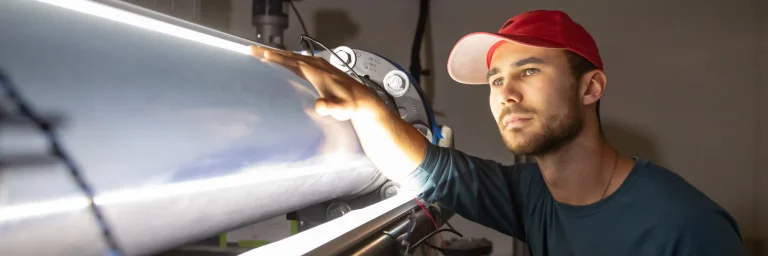Ph.D. in Mechanical Engineering
Tomorrow's advances call for researchers with the imagination to achieve them.
Our advanced labs are home to projects in robotics and machine vision, gas turbine engines, engineered materials, biomechanics, and unmanned aerial vehicles. If you're considering teaching at the college level or participating in research, explore this Ph.D. program.
- Program type:
- Doctoral Degree
- Format:
- On Campus
- Est. time to complete:
- 4 years
- Credit hours:
- 90
Why earn a Ph.D. in mechanical engineering?
UND's Ph.D. in Mechanical Engineering
-
More than two-thirds of students in the Mechanical Engineering program receive financial support.
-
Weekly seminar gives Ph.D. candidates a chance to share research during various stages of development, and to gain exposure to a diverse range of other work.
-
Collaborate on real-world projects. In recent years, graduate research sponsors have included NASA, the National Science Foundation, LM Windpower and others.
-
Access leading-edge engineering research facilities on campus.
-
Enhance your professional skills at 60+ free workshops offered through the UND School of Graduate Studies. Our goal is to provide you with the workforce skills and job search strategies to succeed.
-
Study at a Carnegie R1 Institution ranked #144 by the NSF. In 2025, just 187 American universities held the R1 status.
